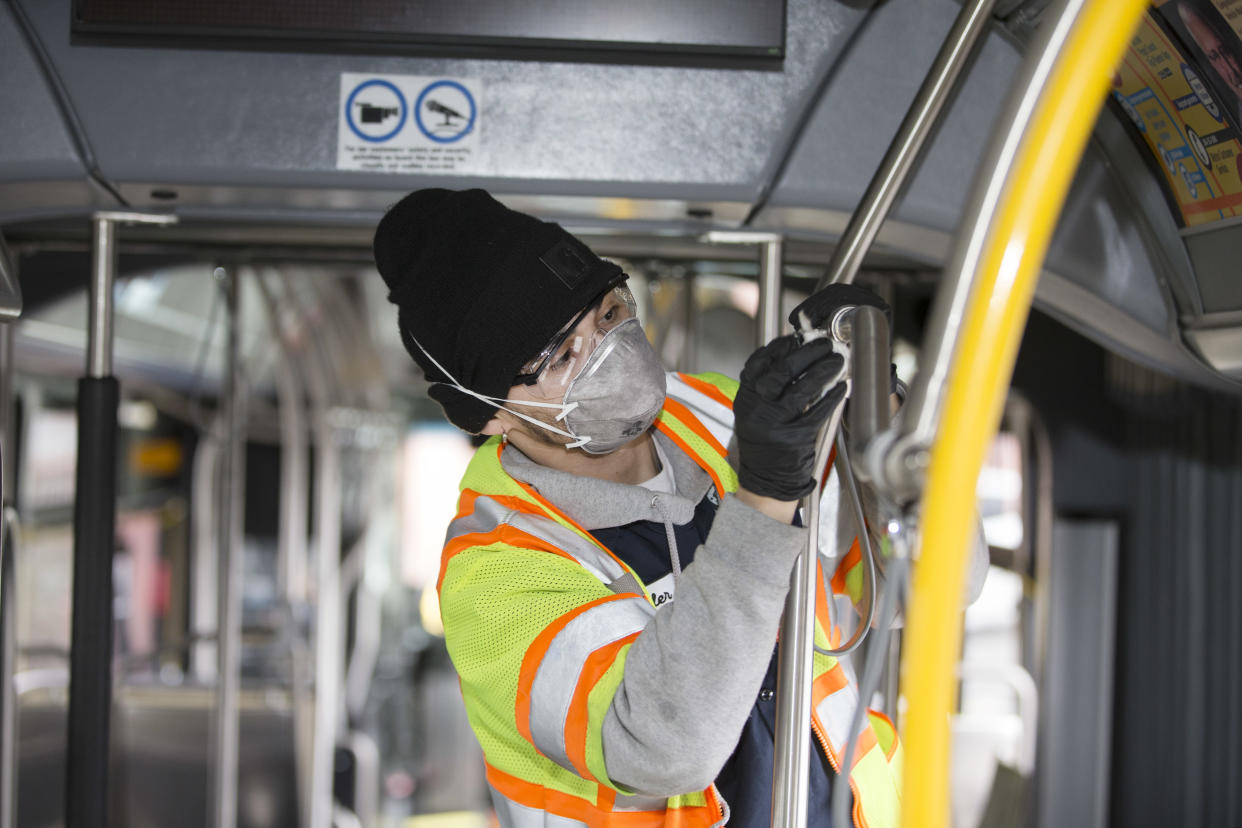How prepared is your state for coronavirus? This index can tell you

With over 1,200 cases of the coronavirus, according to the latest data from Johns Hopkins University, the U.S. is in the midst of a viral outbreak that shows no signs of slowing down. In an effort to curb the spread, basketball tournaments, film festivals, marathons and even schools have been temporarily shut down — and cities in which it is spreading have enacted containment measures such as bans on large gatherings.
The announcements, many of which landed just minutes apart this week, seem to have fueled panic about what might happen next. As of Friday, a nationwide lockdown like the one launched in Italy seems unlikely, but as the Centers for Disease Control and Prevention (CDC) warns that more cases of coronavirus are on the horizon, it can be helpful to learn more information about which regions of the U.S. are ready for an outbreak.
So how do you know if your state has the preparations in place to handle a health disaster?
It’s a question Glen P. Mays, PhD, a professor at the University of Colorado Denver and a renowned expert in preparedness and health systems, has been studying for decades. Mays leads the research team behind what’s called the National Health Security Preparedness Index. The NHSPI, as it’s known, was created by the CDC in 2013 to measure how prepared individual states (and as a result, the nation) are for the health consequences of disasters — ranging from tornadoes and hurricanes to large scale viral outbreaks.

Now run by the Robert Wood Johnson Foundation — the nation’s largest health nonprofit — the index calculates an overall score for each state, using 129 measures from 60 different data sources. The measures are pooled into six domains, each representing an important factor during a health disaster: health security surveillance, community planning and engagement, incident and information management, healthcare delivery, countermeasure management, and environmental and occupational health.
Each state is scored in those six domains, and the cumulative score of those leads to a final rating for each state. Measured on a scale of 0-10, the average overall score of readiness in the U.S. is 6.7. While the majority of states meet or exceed this, multiple states show signs of being underprepared.
California and Washington, two states with the most cases of coronavirus thus far, both scored below the national average of readiness. California, where Gov. Gavin Newsom declared a state of emergency this week, scored lowest in areas having to do with the tracking of disease and mobilizing of community efforts. Washington, the first state to experience a cluster of cases, showed low numbers in areas having to do with deploying supplies (such as medical equipment and doctors) to where they are needed.
New York, by contrast, scored a 6.9, two points above the national average and one of the highest overall in the nation. The state — which now has over 300 cases of the coronavirus — scored extremely high in the area of health security surveillance, which tracks things like the number of epidemiologists per 100,000 people. The least prepared state in the nation is Alaska, followed in a three-way tie between Nevada, West Virginia and Ohio. Aside from New York, states with above-average preparedness include Colorado, Utah, Nebraska, Vermont, Maryland, Rhode Island and Virginia. The highest-ranked state is Massachusetts.
For Mays, paying attention to this index in the midst of the coronavirus outbreak is crucial — specifically certain data points. “I would point out surveillance and containment, a lot of that work just requires boots on the ground, sufficient numbers of people,” he says. “The number of trained epidemiologists, for example. Those are your disease detectives, they’re needed to deploy testing, do outbreak investigation, contact tracing and [release] quarantine orders if those are needed. States that have fewer trained epidemiologists are going to have more trouble as this outbreak grows.”
Mays says the index has proven useful in recent years, and that reality has reflected what’s on the screen. “We definitely have a growing body of evidence showing that states that score higher on this index generally fare better in terms of the health outcomes that are experienced when large scale emergencies occur,” he tells Yahoo Lifestyle.
Related Video: Pres. Trump Announces National Emergency Over COVID-19
While the “primary audience” for the index are officials in government and health, with the coronavirus outbreak, he hopes that others will pay attention, too. “With this kind of problem, I think more information can be useful,” he says. “Knowing the overall level of health protections that are available in your community could help you see where your state’s strengths and weaknesses lie — and help you understand some of the patterns that we're likely to see in terms of this outbreak.”
On top of the general public, he says it may help inform officials on where to allocate funds. “Knowing that we are now seeing large scale outbreaks in geographic areas that have relatively fewer protections in place, that’s important information to know,” says Mays. “Congress has just passed this, additional funding for preparedness. We can certainly use data like that to figure out where do we need to deploy additional resources. And certainly Washington and California — based on the number of cases and what we know about their baseline levels of health protections — should certainly be on the shortlist.”
For the latest news on the evolving coronavirus outbreak, follow along here. According to experts, people over 60 and those who are immunocompromised continue to be the most at risk. If you have questions, please reference the CDC and WHO’s resource guides.
Read more from Yahoo Lifestyle:
What is community spread? Experts weigh in on how to prepare for coronavirus
CDC urges at-risk Americans to ‘take action’ by stocking up on food and medicine for coronavirus
Want daily pop culture news delivered to your inbox? Sign up here for Yahoo Entertainment & Lifestyle's newsletter.

